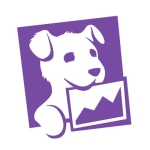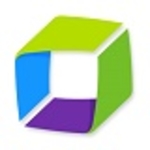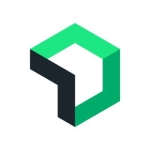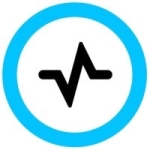I have worked in a couple of areas of Splunk. Initially, I was part of a monitoring team that used it for security information. I used to monitor security alerts which we used to get on Splunk, which was based on the use cases and we set up specific rules for it. Currently, I am part of the administration of Splunk. Now I onboard different log sources to Splunk. We pass over the logs so that it can be used for the security team.
It helps with security and making sure our infrastructure is compliant. It also allows reporting to be in one centralized location. We can monitor the security logs effectively. It really helps as a cybersecurity element for the company infrastructure to protect us from attacks.
It is quite reliable in terms of data. We have a good amount of licenses currently and find it to be very flexible. It can handle and pull up any amount of data.
Splunk is very fast and user-friendly as well. The UI and design is user friendly. It is easy to understand.
We can do a lot of things on Splunk. We can integrate a lot of other applications on Splunk. And that can be used for day-to-day security operations. It is easy to use, easy to implement, and it is fast. It is reliable.
Our organization monitors multiple cloud environments. We monitor all the infrastructure and cloud environments of clients.
It is easy to monitor multiple cloud environments with Splunk. You have to get clients onboarded to Splunk first, and then the monitoring part comes last. We have a couple of things that have to be done before the security team starts monitoring. For example, we install the agents and set up the hosting. We get the data from the host, we pass it. It is quite a lengthy process. It is easy, however, we have to do it very carefully and cautiously.
Splunk Enterprise Security provides visibility into different environments.
The solution's insider threat detection capabilities for helping our organization find unknown threats or anomalies in behavior are good. We have multiple security frameworks. For example, we have micro frameworks. There are different sets of rules. We set it. What Splunk does internally is just match the incoming logs. Based on the rules that we have set, it will match with the incoming logs. If it matches, then it will generate alerts for the security team. Based on that, we can identify if there is a potential threat trying to get into the company or internal infrastructure.
The actionable intelligence provided in Splunk Enterprise Security is good.
It will help us to automate things and can handle certain items on its own. It will just investigate, remediate, and close the necessary alert. If it is beyond Splunk's capability, then an investigation team will be involved in it.
I have used the threat topology and attack framework feature, however, now I am more of an administrator.
Splunk Enterprise Security is good for analyzing malicious activities and detecting breaches. There are a couple of other tools as well, which do the same thing. However, with Splunk, it's very easy to work with the dashboard and do search queries. You can easily look through the logs via Splunk UI.
The solution helped reduce our alert volume. It will just minimize the false alerts, and just post positive alerts. It's likely reduced false alerts by 60%. A lot is automated now and that helps cut down on manual work.
The solution has helped to speed up our security investigations. Once again, the automation will speed up the process of investigation. It saves a lot of time for analysts as it allows them to see the initial data. If a team has multiple alerts, it will take them time to go through and check everything. However, Splunk does the initial investigation for analysts and will escalate to analysts as needed. It might have reduced security investigations by 80% compared to earlier versions.
When we do a rollout from the server or host or anything, we'd like to see more automation. It would save us time. We wouldn't have to write anything. We would just like the raw log automation.
I've been using the solution for three years now.
There are two types of users: the administrators and then the users where the logs are coming from. We have about ten to 15 administrators working directly with Splunk. Overall, there may be more than 1,000 end users we get logs from.
The solution is scalable. In terms of data, it's very flexible.
Technical support is good.
I've used other solutions in the past. We previously used
ArcSight Enterprise Security Manager (ESM). It was older and very slow. Comparatively, Splunk is very fast and it has a better UI.
The initial setup was easy. It was not complex. I didn't do the implementation on my own. The deployment times vary. There are many moving parts, such as approvals that need to be taken into consideration.
We get logs from various sources from various clients.
It does require a bit of maintenance. It requires, for example, server upgrades and patching.
I can't comment on pricing. I don't take care of that aspect.
I'm a customer and end-user.
I'd recommend the solution to others and invite them to test the service first on the infrastructure they have. It's a very valuable product to have.
I'd rate the solution nine out of ten.




















